Will former Taiwan President Ma Ying-jeou's China visit win support for the KMT?
East Asian Institute senior research fellow Qi Dongtao analyses the significance of former Taiwan President Ma Ying-jeou's upcoming visit to mainland China. Could history repeat itself and the visit be a harbinger of a marked strengthening of ties between the mainland and the KMT, leading to a victory over the DPP in the 2024 elections?

News that former Taiwan President Ma Ying-jeou will be making an ancestral visit to China in end-March has become a hot topic on both sides of the Taiwan Strait. His visit is set to coincide with Taiwan President Tsai Ing-wen's stopover in the US.
Not only that, this year is the lead-up to Taiwan's presidential election year in 2024, and since its "Two Sessions" where it installed a new government, Beijing has been giving Taiwan renewed signals for dialogue. Given the circumstances, there have been growing hopes of cross-strait tensions easing and of the Kuomintang (KMT) standing a good chance in the presidential race.
Actually, signs of the mainland strengthening exchanges with the KMT were already apparent when KMT vice-chairman Andrew Hsia made his second visit to the mainland in over five months in early February. Hsia was not only received by Chinese Communist Party (CCP) Politburo Standing Committee member Wang Huning, but news of his visit was widely reported in the People's Daily.
This was vastly different from his treatment during his last visit, when he was greeted by the vice-director of the Taiwan Affairs Office. Within five months, the political situations on both sides of the Taiwan Strait had changed, with the different diplomatic protocols accorded to Hsia clearly indicating the impact of these changes on cross-strait interactions. Ma's visit to the mainland should also be analysed in the context of these changes.
KMT's message to voters on cross-strait role
The biggest change that has taken place in Taiwan politics is the KMT's landslide victory in the local elections last year. This boosted the party's morale and narrowed the gap in approval ratings between itself and the Democratic Progressive Party (DPP), giving it a glimmer of hope in the 2024 electoral race. At the same time, the CCP's 20th Party Congress successfully concluded last autumn with a new leadership team appointed, and Wang publicly leading Beijing's new Taiwan policy.
Ma's upcoming visit bears the same political significance as Lien's visit to the mainland in 2005: it is a message to Taiwan voters that the KMT can maintain cross-strait peace.
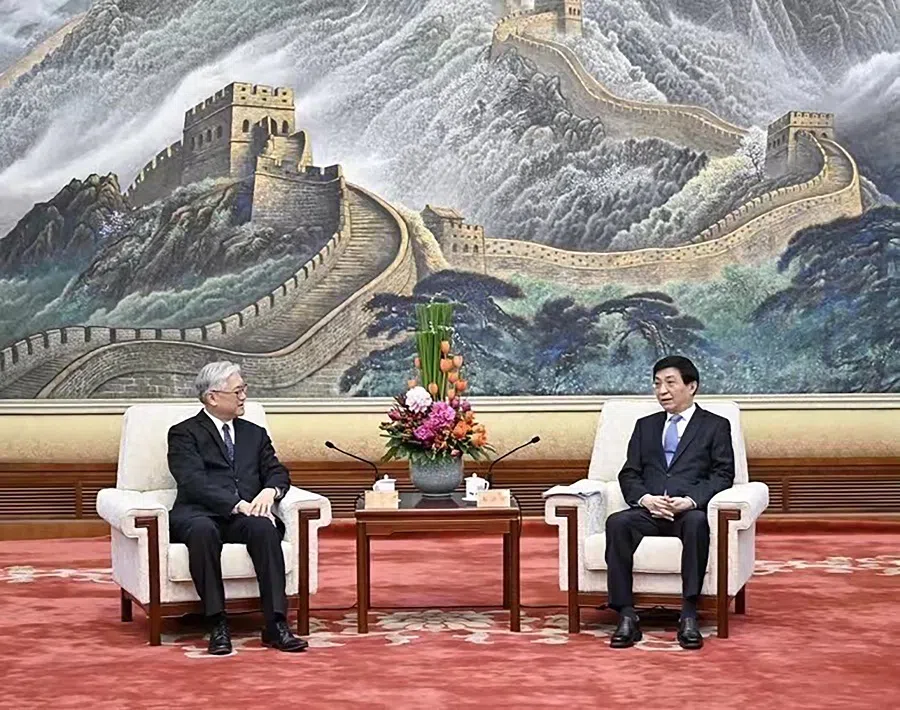
Beijing assesses the KMT's win in the local elections as a defeat of the DPP's "resist China, protect Taiwan" policy, believing that Taiwan's public opinion is seeing an awakening. They see a similarity in the situation with what happened in 2007 during former Taiwan President Chen Shui-bian's second term in office: back then, Taiwan voters abandoned the DPP which had a radical pro-independence image, and instead supported the KMT, which sought to improve relations with the mainland. In its estimation, if Beijing is able to help the KMT recreate the scenario in 2007, the KMT could win the 2024 presidential elections like it did in 2008.
While it was Ma who led the KMT to victory in the 2008 presidential election, it was then-KMT Chairman Lien Chan who undertook the icebreaking, peacemaking visit to the mainland in April 2005, which led to the warming of relations between the KMT and Beijing. While no high-profile political meetings have been planned, Ma's upcoming visit bears the same political significance as Lien's visit to the mainland in 2005: it is a message to Taiwan voters that the KMT can maintain cross-strait peace.
For the mainland, KMT still the lesser of two evils
Notably, China's Taiwan policy announced at the CCP's 20th Party Congress maintains that reunification by peaceful means is still the first choice; moreover, cross-strait interactions and integrated development remain the most important policy tools to achieve peaceful reunification.
As such, Beijing's new leadership has to overcome the challenges posed by the US on the Taiwan issue: deterring provocations with tougher means, while creating opportunities to interact with all sectors in Taiwan, and even discussing reunification plans and promoting the process of peaceful reunification. The newly-installed leadership team at the Two Sessions has also heavily stressed this point. All these factors have contributed to the numerous visits by senior KMT officials to the mainland.
But for them, the lesser of two evils still seems to be the KMT, as the latter remains the party that Beijing needs and can stand united with.
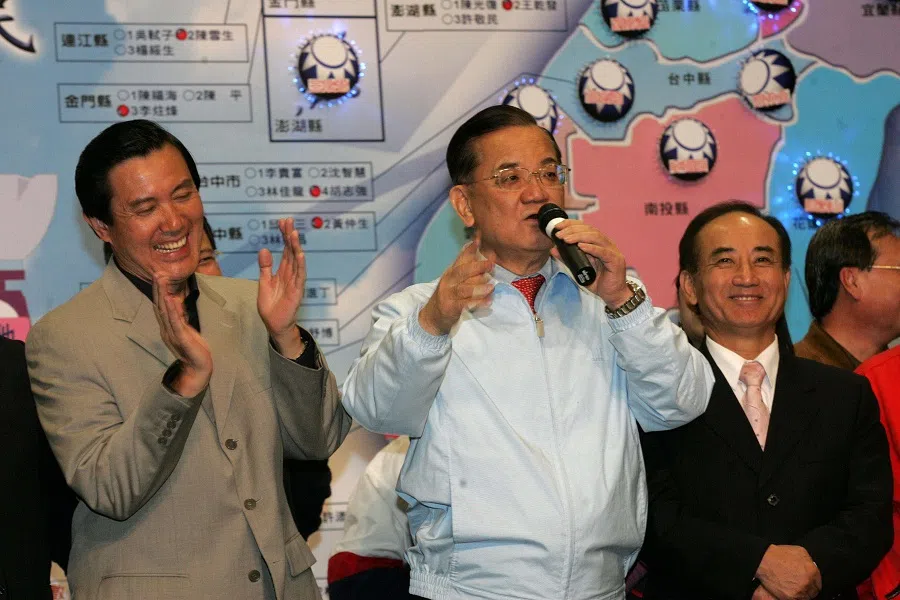
That said, the mainland is disappointed with KMT infighting and has even criticised the KMT for using the "1992 Consensus" and the "anti-Taiwan independence" card to reap various benefits from the mainland when it is in fact agitating for "ROC independence" (华独) ("Taiwan independence" in disguise, or a stubborn resistance of reunification) in Taiwan and the world.
But for them, the lesser of two evils still seems to be the KMT, as the latter remains the party that Beijing needs and can stand united with. This is because, amid growing China-US rivalry, the KMT, which acknowledges the "1992 Consensus", is the only political party in Taiwan capable of working with Beijing to significantly improve cross-strait relations.
The KMT's 2024 election chances
Can the KMT win the 2024 presidential election? Since the DPP came to power in 2000, both the DPP and KMT have only each held on to the presidency for two terms. Will this pattern repeat itself in 2024? As Taiwan's current political situation is indeed similar to that in 2007, will the DPP also fall as it did in 2008?
Current cross-strait tensions are reminiscent of those in 2007, and most Taiwan voters do wish to improve cross-strait relations not only to avoid military conflict, but also for mutual benefit. But the current situation is also in many ways different from back then, which makes it difficult for the scenario in 2008 to repeat itself.
Tsai has always maintained the image of following the US in containing mainland China in a low-key manner, and the Taiwanese do not feel she is aggressively pro-independence.
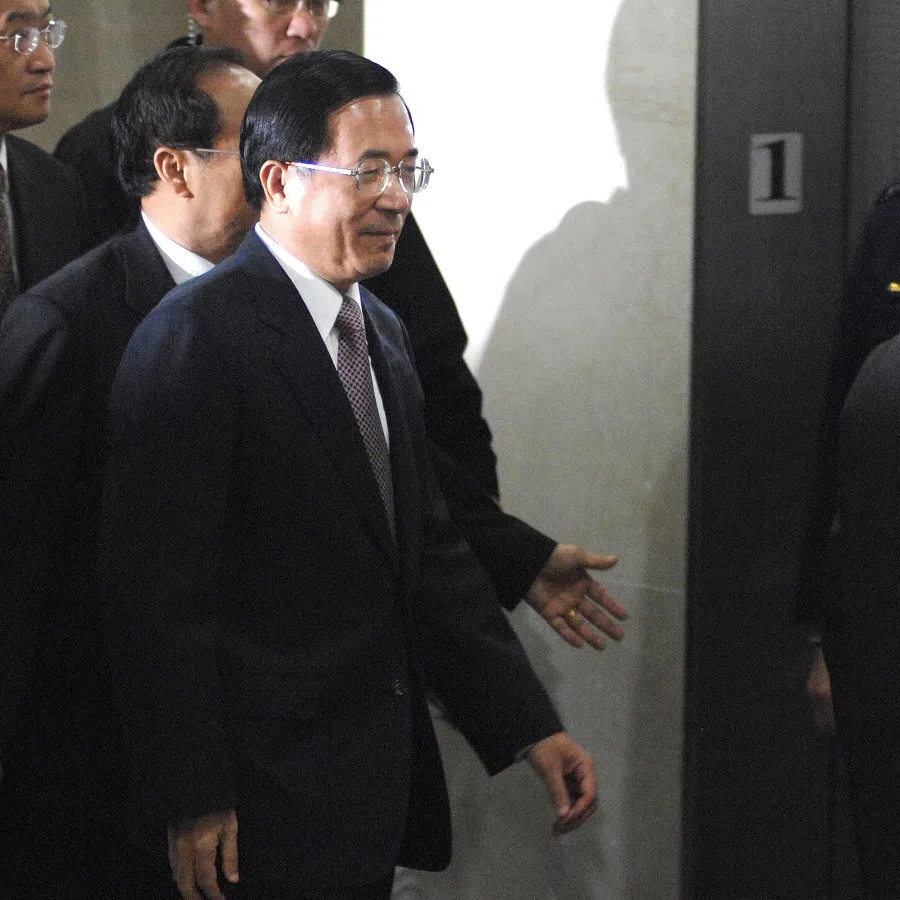
Back then, cross-strait tensions was just the superficial reason for Taiwan society's dissatisfaction with Chen and the DPP. The deeper reason was because Chen made use of radical Taiwan independence policies to solidify his position in the deep Green coalition in order to escape from various corruption scandals.
Cross-strait relations consequently became tense and Taiwan society was torn apart, which led to an appalling aggravation of ethnic conflicts and the Blue-Green divide. Yearning for peace, the majority of voters then voted for the KMT, which was thought to be adept at maintaining stability, in 2008.
But at the moment there is no big news of corruption involving Tsai and the DPP, while Taiwan's domestic disagreements are not intense. Also, Tsai has always maintained the image of following the US in containing mainland China in a low-key manner, and the Taiwanese do not feel she is aggressively pro-independence.
For most Taiwanese voters, cross-strait tensions are due to China-US tussling and the DPP is just caught in the middle, a follower leaning towards the US, and so they do not blame the DPP for cross-strait tensions.
The US factor
The more important difference now as compared to 2007 is the role of the US. Previously, China supported the George W. Bush administration in its international strategy against terrorism after 9/11, such that the extremely pro-Taiwan Bush Jr changed track and started to work with China in managing Chen Shui-bian, publicly objecting to the latter's aggressive pro-independent stance. Chen not only caused havoc in Taiwan but also became a "troublemaker" internationally, leading to the Taiwanese voters turning their backs on the DPP in 2008, as did the US. It took the DPP a long time to regain the trust of the US.
Now, the US is playing the exact opposite role. It highly trusts and supports the DPP, and keeps challenging China's bottom line on the Taiwan issue - it must surely hope that the DPP wins in 2024 and continues to follow it in containing China. Most Taiwanese voters know this. The DPP having the support of a strong US might well impact voters' choices in 2024.
So, even if the KMT has the edge on local issues, it is still usually at a disadvantage in central issues.
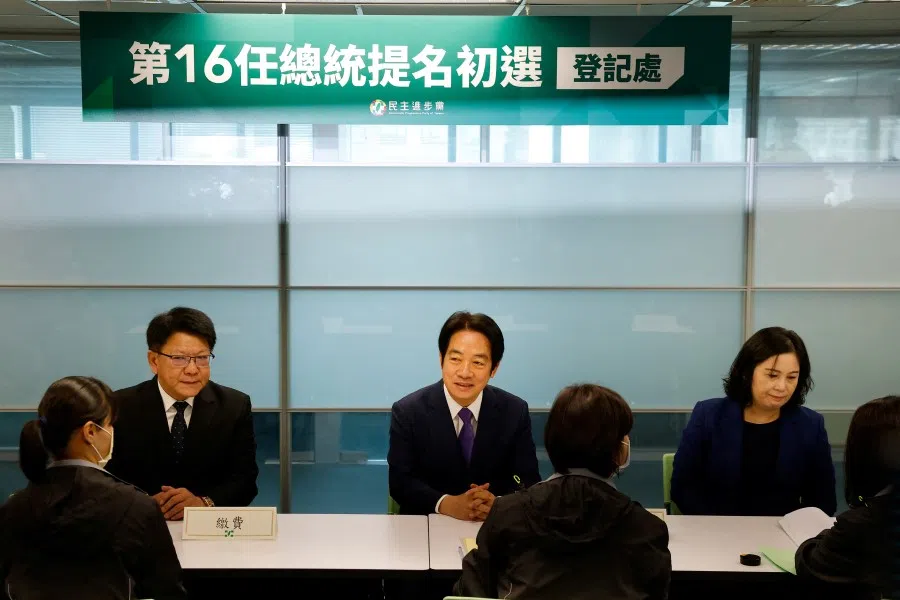
In that case, does the KMT's victory in the local elections really mean that they will also win in the 2024 elections? In fact, the KMT also won big in the 2018 local elections, and a new star was born in Han Kuo-yu. After the election, the KMT was even stronger than it is now. However, it still lost to the DPP in the 2020 general election. In the end, voters look at different issues in local elections and central elections. So, even if the KMT has the edge on local issues, it is still usually at a disadvantage in central issues.
Unless the ruling party shows obvious problems in domestic governance that sparks disapproval and objections before the general election - of the magnitude of the "red army" protesting Chen Shui-bian's second term, and the Sunflower Movement against the Cross-Strait Service Trade Agreement (CSSTA) during Ma's second term - the ruling party still holds an edge over the opposition in the general election.
When it comes to central issues such as economic development, government reform, social welfare, environmental protection, and human rights improvement, the policies of both parties are becoming increasingly similar, and there is gradually less to choose between them, so that voters cannot vote based on these issues.
The only highly galvanising issue on which there are clear differences is cross-strait relations, which is an inevitable reality in Taiwan's general election. Right now, the KMT holds no advantage on cross-strait issues, with just a slight improvement compared to previously, which cannot guarantee victory in 2024.
Also, the US factor will have a huge impact on Taiwan's 2024 general election, not just because if the US clearly favours the DPP, it will lead Taiwanese voters to support the DPP - more importantly, the US can manipulate anti-China sentiment again in Taiwan, just as the 2019 protests in Hong Kong and the anti-China sentiments they ignited helped Tsai Ing-wen turn things around and win in 2020.
One might say their votes will have a global impact...
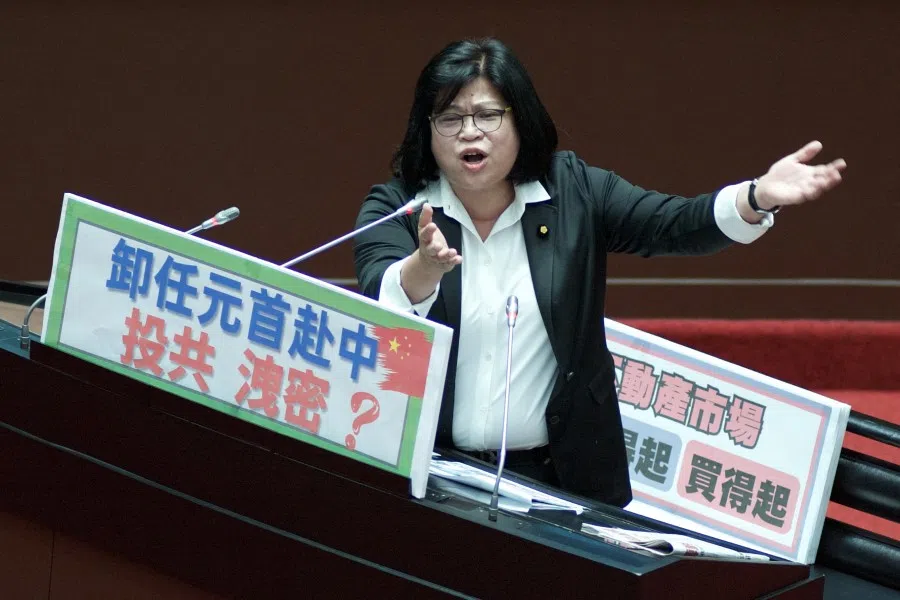
While US House Speaker Kevin McCarthy has put off visiting Taiwan and will meet Tsai in the US instead, he might still visit Taiwan just before the election, hoping to provoke larger-scale military exercises from mainland China, which the DPP can use to spark anti-China sentiment, and win again in 2024. Even putting aside the lack of unity within the party and the resulting negative impact, the KMT will not have an easy time in 2024.
A recent poll showed that support for the KMT has slipped to the level of a few years ago when it was trailing the DPP, which is a warning to the KMT. Perhaps Ma's low-key visit to mainland China would help the KMT recover some support in Taiwan.
Next year, Taiwan's voters will decide through their ballots which party will govern Taiwan, which will have a huge impact on China-US-Taiwan relations in the four years after, and indirectly affect the strategy of confrontation between China and the US in the Asia-Pacific region and even the world. One might say their votes will have a global impact - it is not just the DPP and KMT that will fight for these votes, but Beijing and Washington who are also trying to influence them, while other surrounding countries such as Japan will also be watching closely. Do the Taiwanese voters realise the power of their votes?
This article was first published in Lianhe Zaobao as "夏立言、马英九访陆与国民党的2024年之路".
Related: 'Resist China, protect Taiwan' becoming a consensus in Taiwan | Taiwan: A runway for great powers to flex their muscles? | Who dictates war and peace in the Taiwan Strait? | Both sides of the Taiwan Strait fear imminent war | Biden's 'gaffe' on Taiwan reflects changing status quo in the Taiwan Strait | Will the US abandon Taiwan? | If China strikes Taiwan, can it bear the punishment from the US and its allies?


![[Big read] When the Arctic opens, what happens to Singapore?](https://cassette.sphdigital.com.sg/image/thinkchina/da65edebca34645c711c55e83e9877109b3c53847ebb1305573974651df1d13a)


